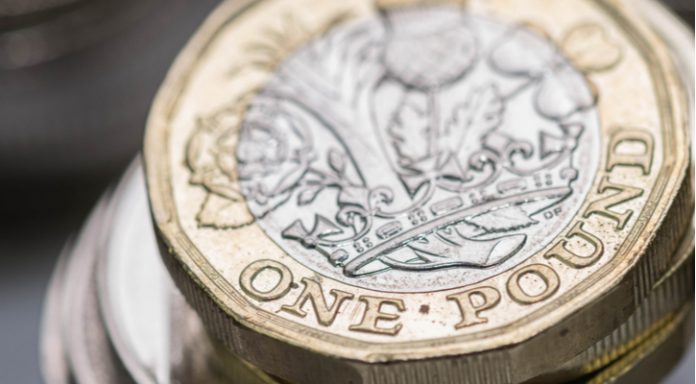The pound fell versus the euro across the previous week despite the Bank of England (BoE) boosting optimism of a rate hike this summer, hitting a low of €1.1357.
| What do these figures mean? |
|---|
| When measuring the value of a pair of currencies, one set equals 1 unit and the other shows the current equivalent. As the market moves, the amount will vary from minute to minute. For example, it could be written: 1 GBP = 1.13990 EUR Here, £1 is equivalent to approximately €1.14. This specifically measures the pound’s worth against the euro. If the euro amount increases in this pairing, it’s positive for the pound. Or, if you were looking at it the other way around: 1 EUR = 0.87271 GBP In this example, €1 is equivalent to approximately £0.87. This measures the euro’s worth versus the British pound. If the sterling number gets larger, it’s good news for the euro. |
Brexit concerns weighed on the pound across last week overshadowing hopes of an interest rate rise by the BoE in August. There was a change in the vote split at the central bank to 6-3, with 3 now supporting a rate hike, compared to 7-2 in May. This increased optimism among market participants that the BoE will raise interest rates to 0.75% in two months time.
| Why do raised interest rates boost a currency’s value? |
|---|
| Interest rates are key to understanding exchange rate movements. Those who have large sums of money to invest want the highest return on their investments. Higher interest rate environments tend to offer higher yields. So, if the interest rate or at least the interest rate expectation of a country is relatively higher compared to another, then it attracts more foreign capital investment. Large corporations and investors need local currency to invest. More local currency used then boosts the demand of that currency, pushing the value higher. |
However, despite this good news the pound still managed to finish the week lower as Brexit fears were once again dominating. With more and more headlines suggesting that the U.K. will have a no deal Brexit, market participants are getting nervous. Large companies such as Airbus have threatened to pull out of the UK in the case of a no deal Brexit. They are not the first company to make such a statement and its very likely that they won’t be the last. Should these companies follow through with their threats the damage to the economy could be huge.
| Why is a “soft” Brexit better for sterling than a “hard” Brexit? |
|---|
| A soft Brexit implies anything less than UK’s complete withdrawal from the EU. For example, it could mean the UK retains some form of membership to the European Union single market in exchange for some free movement of people, i.e. immigration. This is considered more positive than a “hard” Brexit, which is a full severance from the EU. The reason “soft” is considered more pound-friendly is because the economic impact would be lower. If there is less negative impact on the economy, foreign investors will continue to invest in the UK. As investment requires local currency, this increased demand for the pound then boosts its value. |
With nothing on the economic calendar for today, investor attention is likely to remain on Brexit developments.
Euro Rallies Despite Immigration Crisis & Trade War Fears Growing
The euro was in demand at the end of last week despite the ratcheting up of trade war concerns and growing discontent over immigration policy across the region.
Euro investors shrugged off news that US President Donald Trump was considering applying 20% trade tariffs to EU car imports into the US. This tit for tat measure came as a result of the EU implementing tariffs on €2.8 billion of US imports. However, the market remained sanguine barely budging.
Euro traders also appear happy to shrug off growing divisions in the bloc over migration. Whilst 16 European leaders convened in Belgium on Sunday at a summit ahead of the European Summit on Thursday. This summit was called the Summit to save Merkel and intended to work towards a solution of the immigration crisis in Europe. A crisis which could cost German Chancellor Angela Merkel her job. Normally the political risk would weigh on demand for the euro, however the euro remains relatively calm.
|
This article was initially published on TransferWise.com from the same author. The content at Currency Live is the sole opinion of the authors and in no way reflects the views of TransferWise Inc. |





